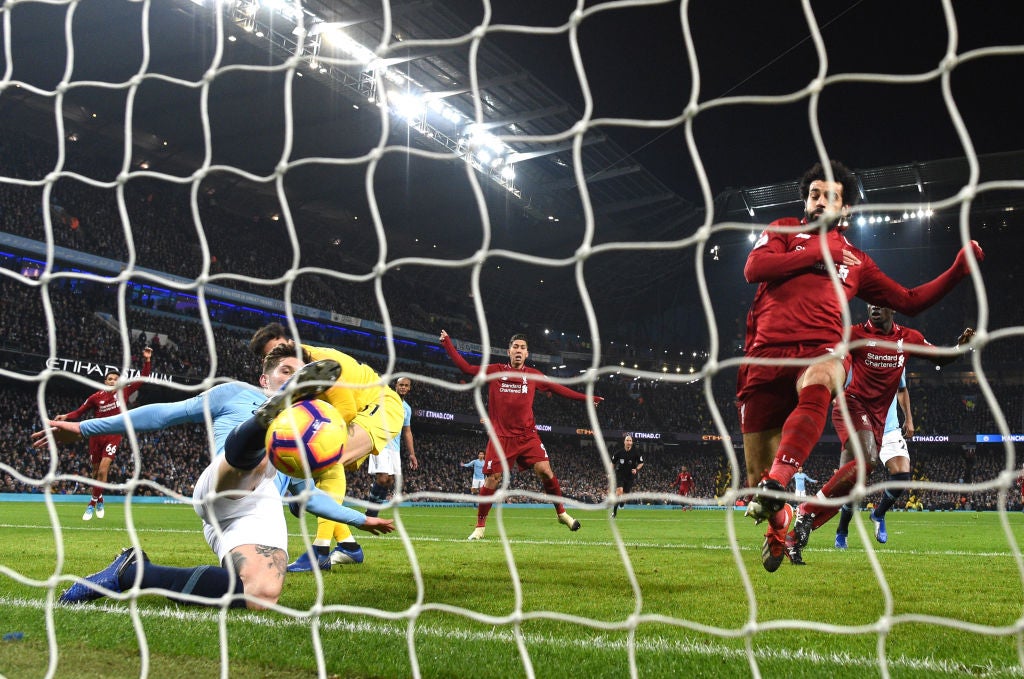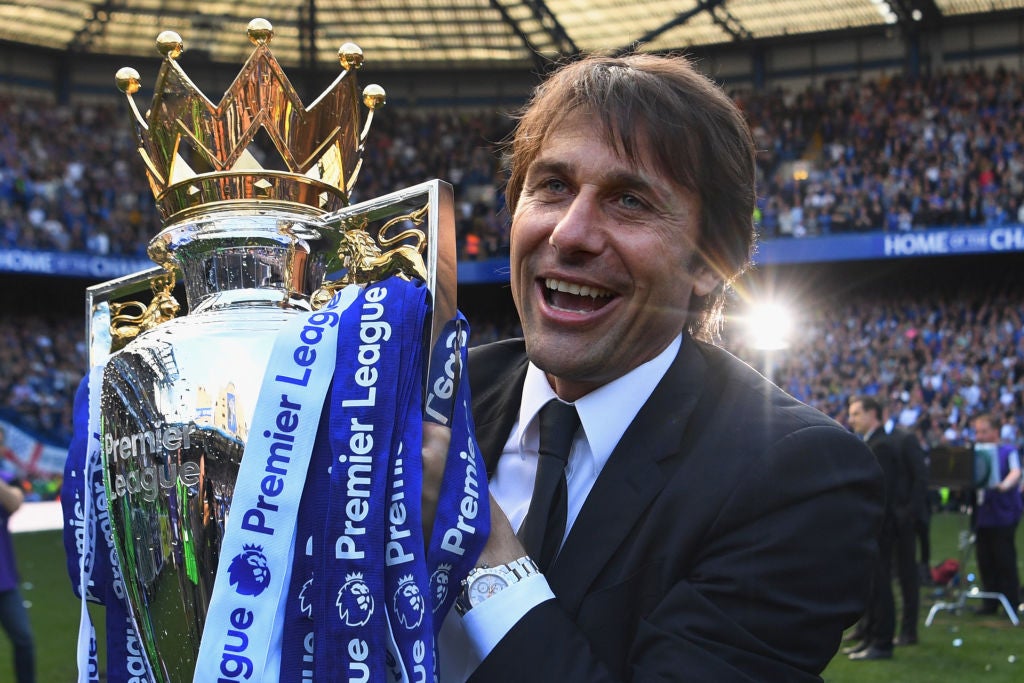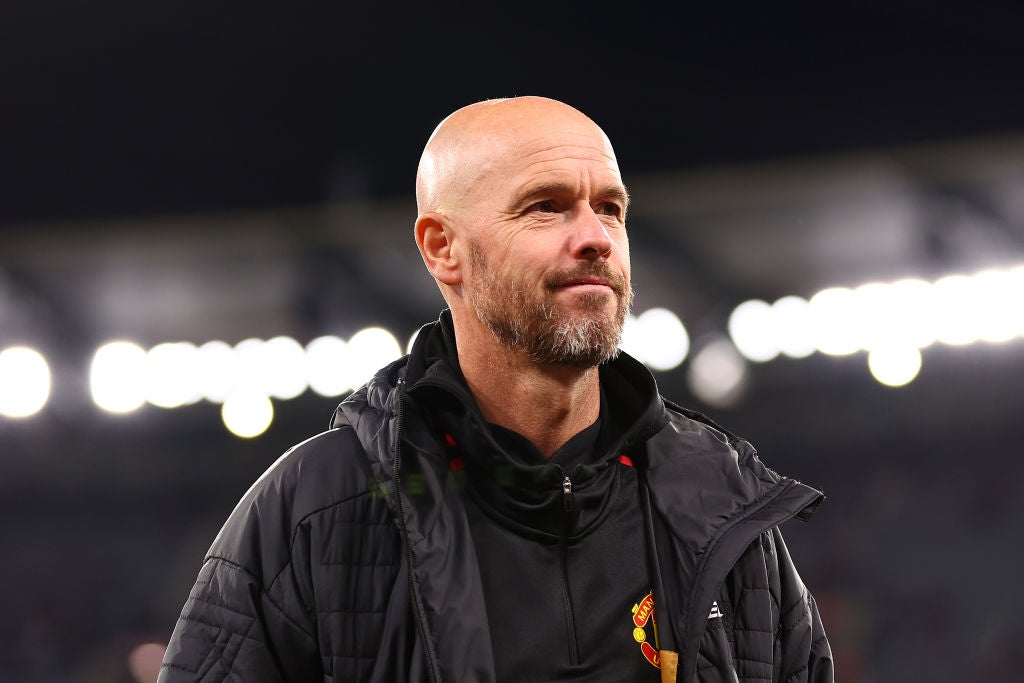
Liverpool had just got proof their brilliant pursuit of Manchester City was doomed. “We were close but in the end not close enough,” Jurgen Klopp reflected on the final day of the season. Again. The 2018-19 campaign had already given them the bittersweet distinction of being England’s greatest runners-up. Then “97 points” almost became a catchphrase at Anfield. Three years on. Klopp said: “92 points is obviously crazy.”
It is, and yet it is also the norm. It is the joint eighth biggest total in Premier League history and the other side to finish with 92, Manchester United in 1993-94, did so from 42 matches, not 38. Go on points per game and seven of the eight highest tallies have been posted in the last six seasons, all by teams managed by Pep Guardiola, Antonio Conte or Klopp.
The one exception was Jose Mourinho’s 95 in his debut season with Chelsea. Yet since 2016, 95 – or 94.83, to be precise – is the average recorded by Premier League champions. Even that is dragged down by City’s tally of 86 in 2020-21’s lockdown and Covid campaign. Take that out and the probability is that 2.5 points per game are needed to win the division; suffer one defeat and five straight victories are required to remedy the damage done.
The margin for error is minimal. Liverpool lost one game in 2018-19 – courtesy of John Stones’ famous clearance at the Etihad Stadium, 11mm before the ball crossed the line – and just two last season: at West Ham and Leicester. No side has lost fewer without winning the title. But the draw has almost been eliminated by champions: between 2016 and 2020, the eventual winners drew just 12 of their 152 league matches. In contrast, the 2015-16 champions, Leicester, drew 12 times. And if they can look anomalies in much, Arsenal’s Invincibles drew 12 in 2003-04 – their haul of 90 points would have put them third in two of the last four seasons – and United’s treble winners were held 13 times in 1998-99.
That unique combination of the Premier League, Champions League and FA Cup trophies gives them a case to be the division’s greatest ever team. Yet they had dropped 23 points by Christmas, enough to disqualify them from a title race now. Sir Alex Ferguson’s side didn’t lose after that December defeat to Middlesbrough, completing the campaign unbeaten in 33 games in all competitions, but with just 79 points. They were masters of brinkmanship.
Ferguson specialised in winning in his time, against his rivals. He only twice reached 90 points in a 38-game season. He was a champion with 75 points in 1997. His first title came after United began with twin defeats and then drew their third match. City have suffered an early defeat in the last two seasons – their second game in 2020-21, their first a year on – but mislaying eight points that early would expel them from contention now. It was a lesson Ferguson learnt the hard way: United dropped nine points in their first five games in 2004-05, 12 in their first 10 a year later. Mourinho’s Chelsea disappeared into the distance.
The title-winning formula needed amending. “We always started pretty slowly, knowing full well even if we were seven or eight points behind come Christmas, we could always catch up,” Gary Neville recalled in 2017. “We’d get stronger as the season went on. But in those two Jose Mourinho years they went hard from the start and they never came back.” Liverpool came from 14 points back last season – albeit with two games in hand – to briefly overhaul City, though only after playing more matches. Yet in a season when the champions may only drop 19, making up eight on them feels all but impossible.

Mourinho’s Chelsea offer one precedent, setting a record-breaking pace relatively briefly. It may raise hopes for others that Liverpool and City will slip back towards the pack a little when Klopp and Guardiola’s reigns end though they have sustained 90-point form for longer, albeit not every year. After Mourinho, no one got past 90 until Conte secured 93 for Chelsea in 2016-17.
It stemmed from a 13-match winning sequence. Now unbeaten runs are not enough: draws can be almost as damaging as defeats. Virtually every title-winning season features extended spells of victories. Before the inception of the Premier League, the longest winning run in English top-flight history was Arsenal’s 14 in 1987. Arsene Wenger’s Gunners equalled that in 2002. Since 2016, however, there have been runs of 18 (City), 18 (Liverpool), 17 (Liverpool, just before the 18), 15 (City) and 13 (Conte’s Chelsea). Last season, Liverpool won 10 in a row and City 12.

The lazy interpretation is to say it means everyone else is rubbish. It is also utterly incorrect, given the Premier League’s status as the world’s richest league, a magnet to players and coaches, arguably boasting more strength in depth than anywhere else. Rather, it highlights the way the bar has been raised by duelling perfectionists setting new standards and records for goals scored and goal difference.
When City became the Premier League’s first centurions by posting 100 points in 2018, Guardiola said: “It is something special. It is a record that will stay for long.” Yet his side got 98 the following season and Liverpool 99 in the next campaign; perhaps, if they had not won the title so early, they might have brought up their ton. There was a symmetry to City’s century – 50 points at home, 50 away with 16 wins, two draws and a lone defeat both at the Etihad Stadium and elsewhere – but it has not proved the outlier their manager imagined.
Rather, there has been a consistency at this new level. Three of Liverpool’s four highest points tallies in their history (adjusting all to three for a win) and their three highest points-per-game averages have come under Klopp, but they have produced a solitary league title.

It means every dropped point comes at a greater cost than was the case 10, 20 or 30 years ago. Last season, City and Liverpool lost four apiece against each other in twin 2-2 draws. Of the 22 points Liverpool failed to claim, 12 were in draws against the top four. They only dropped 10 against the Premier League’s bottom 16 in 32 matches. Of their seven draws in 2017-18, four were against Arsenal, Chelsea, United and City. They got 78 points from a possible 84 against the bottom 14, 60 out of 60 against the bottom half.
All of which indicates how flawless Chelsea, United or Conte’s Tottenham may have to be now; making up between 19 (Chelsea) and 35 (United) points on City feels an impossible task. United haven’t topped 81 points since Ferguson retired, have only once got over 74 and have ended five campaigns with 66 or fewer. Chelsea’s best total since Conte’s champions is just 74. Spurs’ last four seasons have brought 71, 59, 62 and 71 respectively. In different times, some of those tallies would not have left them with much ground to make up. In the era of the 95-point teams, knowing that dropping 20 points can be fatal to ambitions, they have been in a different league. Because if the Premier League used to be won by the Class of ’92, now it is dominated by those with the class to get 95.







